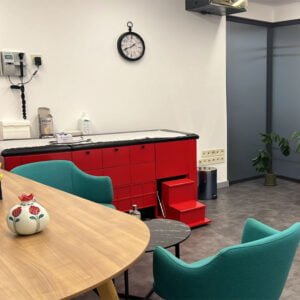Pollen Allergy Treatment
- Home
- Pollen Allergy Treatment

All Inclusive Package Details
5 Star Accommodation
Transfer Services
Hospital
Expert Allergy Doctors
Why Should You Choose Us?
Founded in 2022, CURExplore is a service provider that brings together guests from abroad through medical staff and translators who can speak their own language.
CURExplore, which organizes international patients from all over the world, mostly from Europe to Turkey, is an Istanbul-based health tourism intermediary company that is a member of TURSAB (Association of Turkish Travel Agencies) with the code 14076 and has the Ministry of Health Accreditation.
30-minute free consultation.
After free online consultation, we determine your needs and plan your operation free of charge.
No Surprise Costs
We will not charge you any additional fees.
All Inclusive Packages
5-Star Accommodation, Transfer, Post-Operative Care at the Hotel, Translator, All Processes with You
Fill Out the Form and Get a Personalized Quote
Address
Küçükbakkalköy neighborhood. Merdivenköy Yolu neighborhood. No:12/1 Ataşehir / İstanbulContact Form
Frequently Asked Questions on Pollen Allergy Treatment
Pollen consists of tiny particles released by plants and trees as part of their reproductive cycles. It is an extremely fine dust that is spread by insects and wind. Pollen allergy, typically a reaction to the pollen of trees, grasses, and weeds, occurs when some people's immune systems overreact to these small airborne pollen particles.
Common symptoms of pollen allergy include sneezing, coughing, runny nose, postnasal drip, and itching in the eyes, nose, and throat. The severity of pollen allergy symptoms can range from mild to severe and may include skin reactions like hives. Since pollen is airborne and grasses, trees, and weeds are common in public places, any outdoor environment can contribute to pollen allergy. However, not everyone with pollen allergy experiences symptoms at the same severity. Some people cope with mild symptoms, while others may have more serious conditions. If you suspect pollen allergy, the best course of action is to consult a health professional who can provide a more detailed assessment and recommend suitable treatment.
Allergies persist as long as an allergen is present, and seasonal allergies can be an annoying and uncomfortable experience. However, there are several ways to limit exposure to pollen and reduce allergy triggers. Weather reports and various mobile apps can show daily pollen counts. Avoiding going outside when pollen levels are high is a good idea. Basic hygiene can help reduce your overall exposure. If you’ve been outside all day, try showering and changing into clean clothes as soon as you get home. This will help get rid of any particles that have stuck to you. Keeping windows closed at home or in the car can prevent pollen from entering. Using air purifiers at home can also help clean the air.
Avoid outdoor exercise when pollen levels are high. Opting for indoor gyms might be a better choice. If you enjoy gardening, using protective clothing such as masks and glasses can provide protection against pollen.
You can use anti-allergen covers for beds and pillows to keep your bedroom as pollen-free as possible. Changing filters regularly in home and car air conditioning systems can reduce airborne pollen. Prescription or over-the-counter medications are available for pollen allergies. Using medications as prescribed by your doctor can help keep symptoms under control.
Very dry or very humid air can worsen allergy symptoms. Humidifiers or dehumidifiers can be used to maintain ideal humidity levels. Remember to limit outdoor time during midday and afternoon when pollen counts are typically highest. In general, simple lifestyle changes can help reduce symptoms of pollen allergy. If symptoms persist or worsen, always seek help from a health professional.
There are methods that can provide relief for pollen allergy. Antihistamines can control itching and sneezing in the long term if you have a pollen allergy. Nasal sprays can be used for nasal congestion and discharge. Steroid-containing sprays can be effective but should be used under doctor supervision.
Antihistamine or vasoconstrictor eye drops can be useful for itching and watering in the eyes. Showering and changing your clothes after coming from outside can help you get rid of pollen you carry.
Air purifiers, especially used in the bedroom, can filter pollen and other allergens from the air. Humidifiers can help maintain airway humidity, particularly in dry climates or winter months. However, excessive humidity can also encourage the growth of mold and other allergens, so keeping the humidity balanced is important. Hot beverages, especially herbal teas, can help soothe the throat and relieve nasal congestion. Pets can also bring pollen into the home, so wiping or washing them when they come in from outside is a good idea.
Keep your windows closed as much as possible during pollen season. For clean air indoors, air out your home only briefly to keep pollen out as much as possible. If you live in a city, it’s best to open your windows in the morning; in the countryside, evening is better. Even better: air out your home after a long rain. Always remove the clothes you wore outside before going to bed and air out before entering your bedroom. Doing so will ensure your room stays pollen-free. One of the ways to protect against pollen allergy is OTC medications. They are available over the counter and can be found in most pharmacies. OTC medications can be effective but only manage symptoms temporarily.
Check the pollen count before doing any outdoor activities. Trips and sports activities should be planned according to the pollen count. If your pollen allergy does not respond to these protective measures, or if your allergy causes you to cough or have wheezing breaths, it may be more than an allergy; this means it's time to see a doctor. Allergies can turn into upper respiratory tract diseases such as asthma, bronchitis, or sinus infection; therefore,
it is important to see an allergy specialist who can evaluate your symptoms and develop a special treatment plan for you.


























